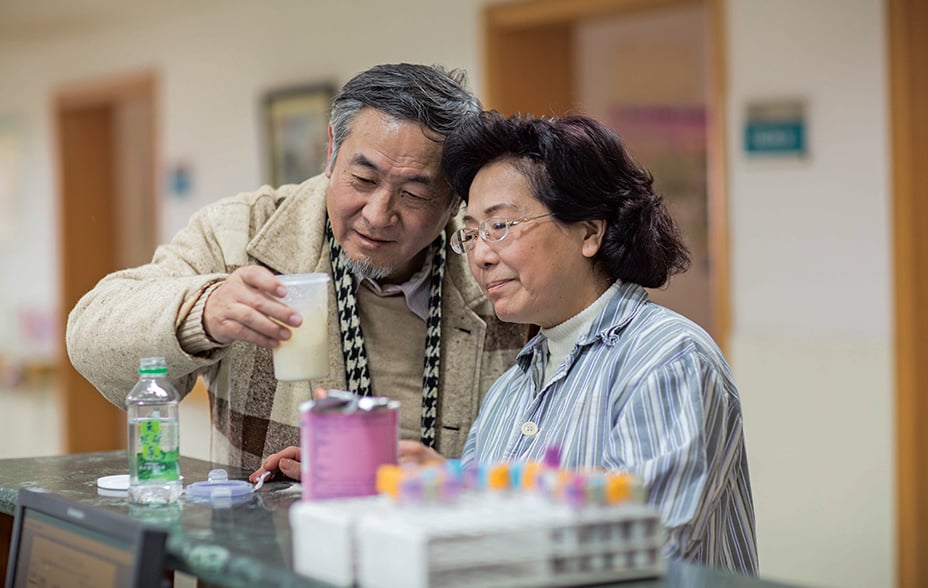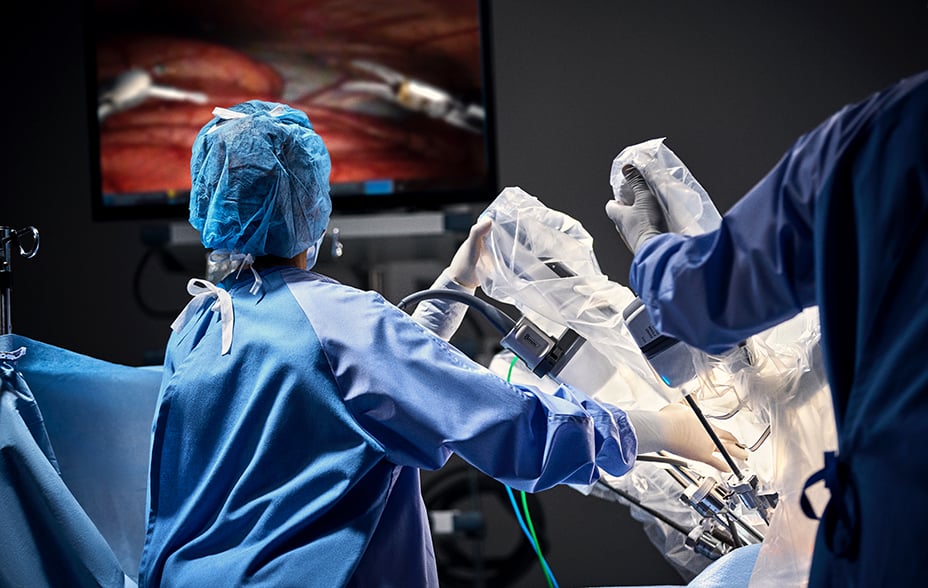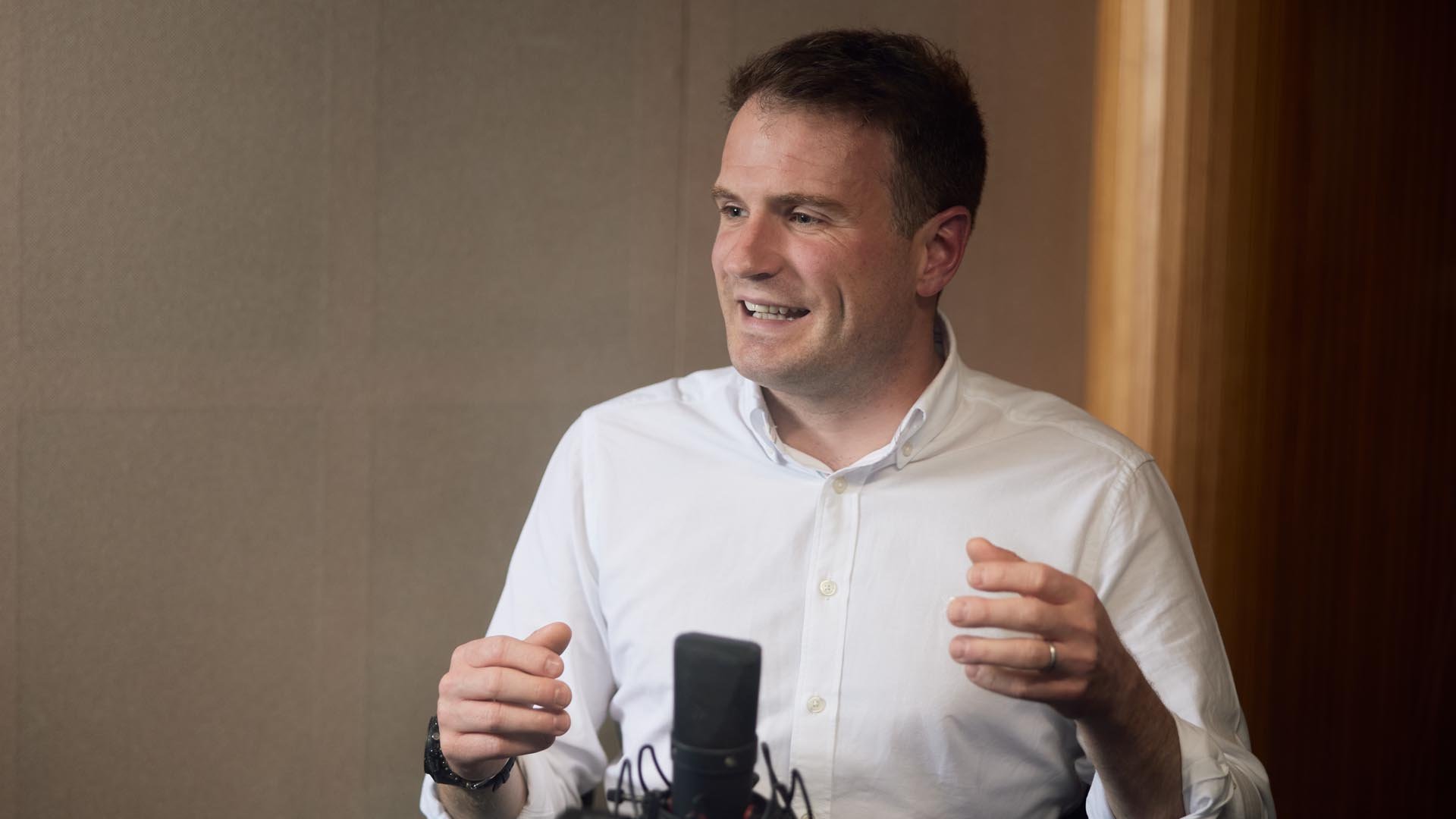Key points
- Lengthening lifespans and falling birthrates affect the types of companies likely to flourish in future
- These firms help us stay healthy, tackle the diseases of old age and keep businesses productive with fewer people
- Danone, Eisai, Insulet and Intuitive Surgical are among growth companies pioneering products and services that tap into this ‘age wave’
WATCH: Investment manager Abbie-Louise Gilbert picks companies well-placed to profit from people living longer but having fewer children
Your capital is at risk.
For a vision of what life might look like in the future, go to Japan.
Not just because of the ways it integrates high-tech ingenuity into daily life but for the preview it presents of a society conspicuously top-heavy with elderly people.
“When I was there last year, there was great excitement about the renewed potential in equities, but it was the ageing population that struck me most,” investment manager Abbie-Louise Gilbert recalls in her Disruption Week event.
“The older people I saw were active – working, playing, exercising and contributing to a society that seemed more vibrant and far more inter-generational than any I knew. Japan’s elderly aren’t frail. They’re running company boards and making big decisions.”
Gilbert says the world’s third-largest economy is a forerunner of the ‘age wave’- a mega-theme she suggests could be as epoch-making as the changing climate and rise of artificial intelligence in terms of its profound, long-term consequences.
Demographic change
There are already more than 700,000 centenarians across the world, according to the UN. And in the UK, deaths now exceed births in number. This is just the first chapter of an accelerating demographic change.
“According to the UN, there'll be more than one billion over-65s by the 2030s and by 2050 about one in five of the population will be considered elderly.
“Achieving greater longevity is one of the successes of our times. But because it’s coupled with falling birth and fertility rates, we need to think about the implications of a smaller, potentially less productive population.”
What then are the implications for growth investors? Gilbert identifies three themes to help spot companies capable of delivering our clients outperformance:
- Preventative wellness: products and services helping us stay physically and mentally fit into old age
- Ageing healthily: innovative approaches to tackling chronic disease
- Automation and productivity: using robots and other machines to fill growing gaps in the workforce
Preventative wellness
Gilbert cites the food multinational Danone as an example of a company addressing preventative wellness. The French company, she says, is undergoing an impressive turnaround under new management.
“Most people know Danone from its yoghurts,” Gilbert says. “But it has the healthiest product portfolio of all major food retailers, with over 90 per cent of products considered low in sugar, fat and salt.”

Danone has a commanding position in healthy products for Asia’s growing elderly population
© Danone
She describes how Danone’s products support a healthy gut microbiome, which is linked to reduced risk of obesity, heart disease and cancer and supports healthy ageing. Less well known, she adds, is that more than half its profits come from its medical nutrition business.
“It entered the tube-feeding market in 2007 to provide nutritionally complete food to those recovering from cancer or elderly patients who struggle to swallow or feed themselves,” Gilbert explains. “Danone has a dominant market position in Asia, attractive margins and the potential to grow as elderly populations increase.”
Ageing healthily
Gilbert gives Japanese pharma leader Eisai as an example of a company that fits into the ageing healthily theme. It spent decades determinedly developing an anti-Alzheimer’s drug. The result, called Leqembi, has been recognised globally for slowing early-stage Alzheimer’s patients’ cognitive decline. This year it was approved in the US where it is now fully reimbursed by Medicare.
“Alzheimer’s is expected to increase from around 48 million sufferers today to over 100 million by 2050,” Gilbert says. “Historically this has been an incredibly difficult disease to treat, with a 99 per cent failure rate in trials.
“Leqembi is the first drug to be approved by the US regulator. While it can’t reverse the condition, it can slow the progression of brain degeneration by nearly 30 per cent. Eisai is committed to relentlessly researching in an area that many thought ‘too hard’ or too costly.”

Leqembi slows the progression of cognitive impairment caused by Alzheimer’s disease
© Eisai
Further hopes, Gilbert adds, derive from Eisai’s efforts in ‘tau therapy’. This could be used to prevent Alzheimer’s development by reducing the tau proteins that get tangled up within the brain’s neurons, leading to inflammation and cognitive degeneration. Eisai also leads research in this area, with a therapy currently advancing through trials.
Disposable pump
Diabetes is another disease whose incidence increases with age. More than half a billion people live with the condition worldwide, and the number is projected to more than double to 1.3 billion people in the next 30 years, according to the US-based Institute for Health Metrics and Evaluation.
That prospect offers opportunities to Massachusetts-based Insulet, which has developed the wearable OmniPod. The disposable device attaches to a diabetic patient’s arm and automatically delivers doses of insulin. One of its advantages is its tubeless design which makes it unobtrusive and means it can also be submerged while swimming or under a shower.
“It does away with the complexity of managing pumps and the discomfort of wearing a clunky device,” Gilbert says.
“Insulet is making pumps smarter through AI, making them tubeless for increased comfort and flexibility. Because it’s less heavily regulated than other systems, it can be distributed through pharmacies.”
Rise of the robots
Shrinking, ageing populations need non-human help to maintain productivity. Japanese holdings, including Keyence and Fanuc, are established leaders in industrial robotics, as well as sensors for machine vision. Their products are already commonplace in many of the world’s factories.
But Gilbert points to other quarters where automation is already playing a role in domains facing skill shortages.
Intuitive Surgical is one such example. The US firm’s Da Vinci robotic systems are deployed in minimally invasive surgery, where they perform highly complex procedures with greater precision than traditional, human-only techniques.
“Not only do these systems enable the surgeon to manage more operations, solving surgeon shortages, but they also enable practising surgeons to extend their working lifespans,” says Gilbert.

Intuitive Surgical’s Da Vinci system uses a 3D camera to show surgeons where to make incisions
© 2024 Intuitive Surgical Operations, Inc
As workforces shrink, companies must replace jobs that can easily be automated. One such opportunity is in transport.
In the US alone, the trucking industry employs over three million workers earning in excess of $100,000 a year. If their jobs could be automated, roads would be safer and insurance costs lower. The effect could be massively deflationary given that the prices we pay often depend on the cost of delivery.
Opportunity in ageing
In an uncertain world, one thing we can be confident about is that the population is set to get older and sicker, a shift that will play out over decades, rather than years.
Less predictable is how quickly and evenly this will happen and what technologies and behavioural reactions determine the speed and direction of change.
“Spotting the investment opportunities inherent in this great global transformation takes patience as well as imagination,” Gilbert says. “There are bound to be surprises, but our job as stock-pickers is to stay alert to the best ideas, wherever in the world they occur.”
“My job is to capitalise on the long-term specialist experience and success we’ve managed to build up as investors,” she adds. “That will require willingness to challenge preconceptions. I’m confident we can continue to do that.”
Words by Colin Donald
Risk Factors
The views expressed should not be considered as advice or a recommendation to buy, sell or hold a particular investment. They reflect opinion and should not be taken as statements of fact nor should any reliance be placed on them when making investment decisions.
This communication was produced and approved in November 2024 and has not been updated subsequently. It represents views held at the time of writing and may not reflect current thinking.
This communication contains information on investments which does not constitute independent research. Accordingly, it is not subject to the protections afforded to independent research, but is classified as advertising under Art 68 of the Financial Services Act (‘FinSA’) and Baillie Gifford and its staff may have dealt in the investments concerned.
All information is sourced from Baillie Gifford & Co and is current unless otherwise stated.
The images used in this communication are for illustrative purposes only.
124618 10051131



